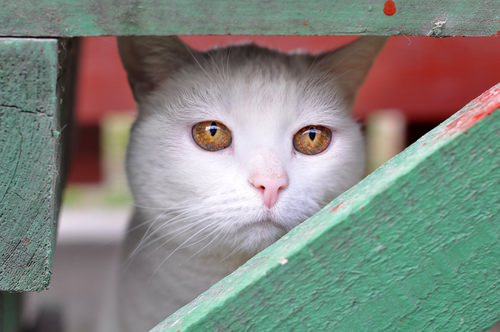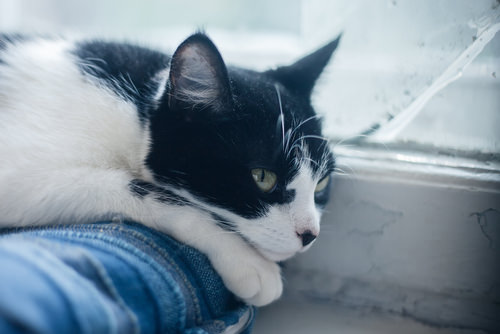Do you suffer from depression or know someone who does? Have you ever wondered if your cat can also? Clinical depression in humans can be characterized by persistent feelings of sorrow and loss of interest. Some patients find it difficult to sleep or to concentrate on tasks. Many people wonder if our animal friends can also experience such feelings.
Depression in human beings can have many causes. The diagnosis is often characterized during a patient interview since discussion can help define the disorder. In animal patients where interview examination is not possible, it is more difficult to outline depressive disorders.

Research has demonstrated an association between stressful conditions and the onset of clinical depression.¹ Stress can cause changes in several regions of the brain. Since the chemical changes caused by stress can lead to clinical depression, there is reason to believe that depression itself is marked by chemical alterations in the brain. Although some of these studies were performed on mice, it is certainly reasonable to deduce that the feline brain would be subject to similar chemical changes associated with depression.

Any being with a brain could theoretically suffer from chemical imbalance, leading to depression and other mental disorders. As of yet, science has not been able to precisely demonstrate this type of disorder in our nonverbal patients, but if you believe that your cat is depressed, you should contact your veterinarian. Just like in humans, mental disorders can certainly be helped through behavior modification and pharmaceutical support.
As always, minimizing stress for your cat (and for you) is a positive step toward mental health and life quality.
Do you love cats? Me too! Find me on Facebook and let’s “chat cat”. Click here.
- Brain region specific monoamine and oxidative changes during restraint stress. Can J Neurol Sci. 2012 May;39(3):311-8. Ahmad A1, Rasheed N, Ashraf GM, Kumar R, Banu N, Khan F, Al-Sheeha M, Palit G.
Brain region specific monoamine and oxidative changes during restraint stress. Can J Neurol Sci. 2012 May;39(3):311-8. Ahmad A1, Rasheed N, Ashraf GM, Kumar R, Banu N, Khan F, Al-Sheeha M, Palit G.
